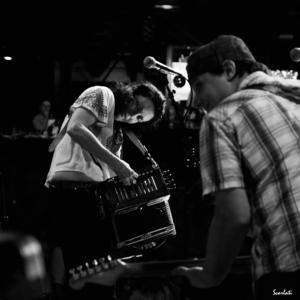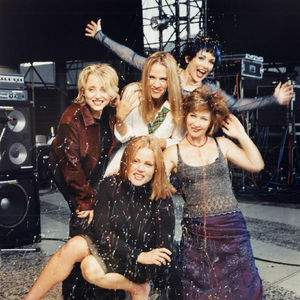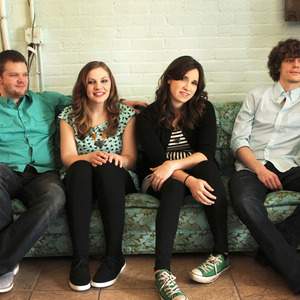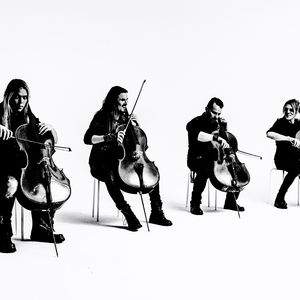Tchaikovsky Tour 2025
November 6, 2025 -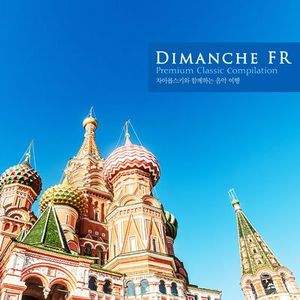
The Tchaikovsky tickets are available.
Everybody can now experience an incredible show from their favorite performer. Here you can purchase the tickets for all your favorite shows. We understand the desire to witness the live performance of a well-known band.
The music event that is going to shook everybody this year is definitely the new Tchaikovsky tour. The evidence for that is very clear. Their shows attract thousands of people even from neighboring regions. Only the best arenas, stadiums, and concert halls are able to host these events and provide all the necessary services to thousands of people. With us, it is not a problem getting a Tchaikovsky VIP package that includes only the best tickets.
It would be difficult to find a better way to enjoy music. This is exactly why fans keep travelling together with the band to many destinations around the world. They won’t be able to get the same level of excitement and emotion from listening to a concert and just looking at the computer screen. With us it is easy to check the schedule of the concerts and find out about other important details.
We are confident that here you will find the best tickets for a complete experience. In addition, you can choose tickets based on your seat preference. With our website it is easy to follow the Tchaikovsky schedule and see all the upcoming shows along with important details. You can see for yourself how convenient it is to use our website.
When your favorite band arrives in your hometown, we will make sure to provide you with the best offers. Here you will find the Tchaikovsky 2025 tour dates and all the details related to their live shows.
Tchaikovsky Tickets 2025 - 2026
Tchaikovsky VIP Packages 2025/2026


About Tchaikovsky
Pyotr Ilyich Tchaikovsky ( chy-KOF-skee; Russian: Пётр Ильи́ч Чайко́вский,[a 2] IPA: [pʲɵtr ɪlʲˈjitɕ tɕɪjˈkofskʲɪj] (![]() listen); 7 May 1840 – 6 November 1893) was a Russian composer of the Romantic period. He was the first Russian composer whose music made a lasting impression internationally. He was honored in 1884 by Tsar Alexander III and awarded a lifetime pension.
listen); 7 May 1840 – 6 November 1893) was a Russian composer of the Romantic period. He was the first Russian composer whose music made a lasting impression internationally. He was honored in 1884 by Tsar Alexander III and awarded a lifetime pension.
Although musically precocious, Tchaikovsky was educated for a career as a civil servant. There was scant opportunity for a musical career in Russia at the time and no system of public music education. When an opportunity for such an education arose, he entered the nascent Saint Petersburg Conservatory, from which he graduated in 1865. The formal Western-oriented teaching that he received there set him apart from composers of the contemporary nationalist movement embodied by the Russian composers of The Five with whom his professional relationship was mixed.
Tchaikovsky's training set him on a path to reconcile what he had learned with the native musical practices to which he had been exposed from childhood. From that reconciliation, he forged a personal but unmistakably Russian style. The principles that governed melody, harmony and other fundamentals of Russian music ran completely counter to those that governed Western European music, which seemed to defeat the potential for using Russian music in large-scale Western composition or for forming a composite style, and it caused personal antipathies that dented Tchaikovsky's self-confidence. Russian culture exhibited a split personality, with its native and adopted elements having drifted apart increasingly since the time of Peter the Great. That resulted in uncertainty among the intelligentsia about the country's national identity, an ambiguity mirrored in Tchaikovsky's career.
Despite his many popular successes, Tchaikovsky's life was punctuated by personal crises and depression. Contributory factors included his early separation from his mother for boarding school followed by his mother's early death; the death of his close friend and colleague Nikolai Rubinstein; and the collapse of the one enduring relationship of his adult life, his 13-year association with the wealthy widow Nadezhda von Meck, who was his patron even though they never actually met each other. His homosexuality, which he kept private, has traditionally also been considered a major factor though some musicologists now downplay its importance. Tchaikovsky's sudden death at the age of 53 is generally ascribed to cholera; there is an ongoing debate as to whether cholera was indeed the cause of his death.
While his music has remained popular among audiences, critical opinions were initially mixed. Some Russians did not feel it was sufficiently representative of native musical values and expressed suspicion that Europeans accepted the music for its Western elements. In an apparent reinforcement of the latter claim, some Europeans lauded Tchaikovsky for offering music more substantive than base exoticism and said he transcended stereotypes of Russian classical music. Others dismissed Tchaikovsky's music as "lacking in elevated thought" and derided its formal workings as deficient because they did not stringently follow Western principles.


